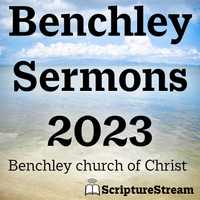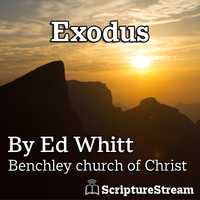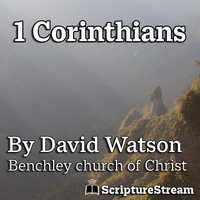Introduction
- Philemon 1:8-9
- Psalms 71:9, 15, 5
Older people are vital and useful.
- Psalms 92:12-15
- Luke 1:36; 2:36-38
- Leviticus 19:32
- Titus 2:2-3
- God has work for older people to do!
- I Timothy 3:6
- What would Benchley be like without older people?
Older people are still fighting the devil.
- I Timothy 5:1-2
- II Chronicles 26:3, 16
- Different temptations can arise in old age.
- Philippians 3:17
We should honor older people.
- Proverbs 20:29
- I Timothy 5:3, 9-10
- Ecclesiastes 12:1-5 – The effects of old age.
- II Corinthians 4:16


